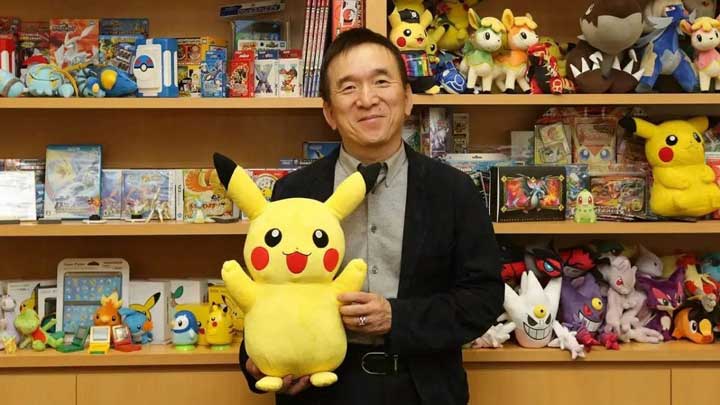
Unseen and Unheard: Why Ignoring Emotional Needs Hurts Kids
Many children’s emotional needs go unseen by busy, well-meaning parents. This article explores why that happens and how to repair the damage—before it becomes long-term.
Home > Online Counselling > Clinical Behavior Disorder > Autism

Autism Spectrum Disorder (ASD) is a complex neurodevelopmental condition affecting how children perceive the world and interact with others. Early understanding and intervention are key to empowering these children to reach their potential. If your child struggles with communication, social interaction, or exhibits repetitive behaviors, this guide will help you uncover the possibilities and the path forward.

Temple Grandin, diagnosed with autism in early childhood, overcame social and communication challenges to become a pioneer in animal science. She has authored books, inspired millions, and shown that autism can fuel innovation and empathy. Personality Report of Temple Grandin

Satoshi Tajiri turned his childhood passion and unique perspective into the global phenomenon Pokémon. Despite social challenges tied to ASD, his creativity reshaped pop culture worldwide, proving that differences are strengths. Personality Report of Satoshi Tajiri

Diagnosed with Asperger’s Syndrome, Dan Aykroyd used his intense interests and vivid imagination to co-create Ghostbusters and build a long, successful career in comedy and film. His story inspires those with ASD to embrace their uniqueness. Personality Report of Dan Aykroyd
Autism Spectrum Disorder (ASD) is a neurological and developmental condition that typically appears in early childhood and affects how a person communicates, behaves, and interacts with others. It is called a “spectrum” disorder because symptoms and severity vary widely. In simple terms, ASD makes it harder for a child to connect socially, communicate clearly, and handle changes or unfamiliar environments. Understanding this helps families create better support systems and navigate their child’s unique needs more effectively.
Parents often notice the early signs of Autism Spectrum Disorder in children before the age of three. These symptoms may differ, but some common ones include:
If you observe several of these symptoms in your child, it’s important to seek a professional evaluation early to provide timely support.
There is no single known cause for Autism Spectrum Disorder, but researchers agree it’s likely due to a combination of genetic and environmental factors. Some possible causes include:
It’s important to remember that parenting style or emotional upbringing does not cause autism. Understanding these potential factors helps shift focus to support and intervention.
Autism can influence every area of a child’s life, but the degree varies widely. With timely support, many children with ASD can thrive. Here’s how different areas may be affected:
Each milestone is possible. Early diagnosis and continuous support can unlock potential and lead to a full and meaningful life.
Without proper support, children with Autism may face growing difficulties in social situations, education, and emotional regulation. The lack of structured guidance and therapy can make it harder for them to build life skills and confidence, increasing the risk of isolation or underachievement in adulthood.
With early diagnosis, consistent therapies, and patient parenting, many children with ASD flourish. They excel in academics, develop passions, build relationships, and lead independent, fulfilling lives. Supportive families and communities play a pivotal role in helping them shine in their own unique ways.

Many children’s emotional needs go unseen by busy, well-meaning parents. This article explores why that happens and how to repair the damage—before it becomes long-term.

Many parents silently suppress their emotional needs, believing caregiving leaves no space for self-care. Here’s why acknowledging those needs is vital for the whole family.

Natural parenting combines eco-conscious choices with intuitive, holistic care to foster a nurturing environment for children and the planet.

When children struggle at school, stay-at-home mothers often face blame. This article explores the emotional toll and calls for shared, compassionate responsibility.

Not setting boundaries may feel kind—but it actually creates emotional chaos for children. Learn how to set loving, firm limits that foster trust and respect.
Although ASD has no cure, many therapies significantly improve skills and daily functioning:
These interventions, especially when started early, can transform a child’s ability to interact, learn, and adapt.
Coping strategies help children with ASD manage daily life and transitions:
Consistency and patience are essential. Coping becomes easier as children feel supported and understood at home and in school.
Our parenting style quiz is a tool designed to help you understand how your parenting approach supports your child with ASD. Different children need different types of structure, patience, and communication. By knowing your style, you can adjust and grow as a parent, providing your child with the kind of support that helps them thrive emotionally, socially, and academically.
Autism Spectrum Disorder may present unique challenges, but it also brings unique strengths. With early intervention, compassionate parenting, and the right resources, children with ASD can lead enriched, independent, and successful lives. By understanding and supporting them, we help unlock a world of potential that benefits not only them but all of us.
